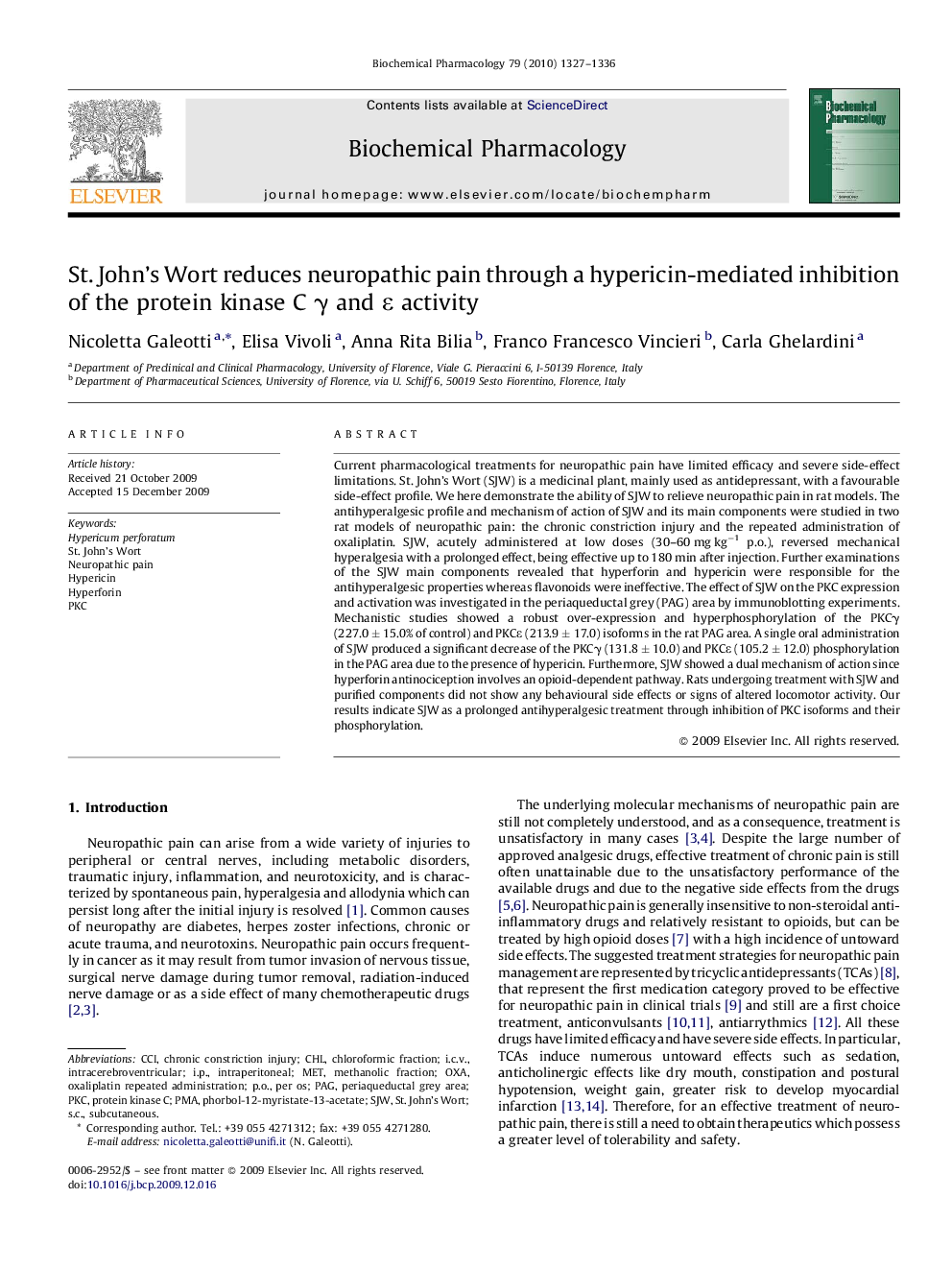| Article ID | Journal | Published Year | Pages | File Type |
|---|---|---|---|---|
| 2513675 | Biochemical Pharmacology | 2010 | 10 Pages |
Current pharmacological treatments for neuropathic pain have limited efficacy and severe side-effect limitations. St. John's Wort (SJW) is a medicinal plant, mainly used as antidepressant, with a favourable side-effect profile. We here demonstrate the ability of SJW to relieve neuropathic pain in rat models. The antihyperalgesic profile and mechanism of action of SJW and its main components were studied in two rat models of neuropathic pain: the chronic constriction injury and the repeated administration of oxaliplatin. SJW, acutely administered at low doses (30–60 mg kg−1 p.o.), reversed mechanical hyperalgesia with a prolonged effect, being effective up to 180 min after injection. Further examinations of the SJW main components revealed that hyperforin and hypericin were responsible for the antihyperalgesic properties whereas flavonoids were ineffective. The effect of SJW on the PKC expression and activation was investigated in the periaqueductal grey (PAG) area by immunoblotting experiments. Mechanistic studies showed a robust over-expression and hyperphosphorylation of the PKCγ (227.0 ± 15.0% of control) and PKCɛ (213.9 ± 17.0) isoforms in the rat PAG area. A single oral administration of SJW produced a significant decrease of the PKCγ (131.8 ± 10.0) and PKCɛ (105.2 ± 12.0) phosphorylation in the PAG area due to the presence of hypericin. Furthermore, SJW showed a dual mechanism of action since hyperforin antinociception involves an opioid-dependent pathway. Rats undergoing treatment with SJW and purified components did not show any behavioural side effects or signs of altered locomotor activity. Our results indicate SJW as a prolonged antihyperalgesic treatment through inhibition of PKC isoforms and their phosphorylation.
Graphical abstractSJW relieves neuropathic pain in different rat models through a decrease of PKC γ and ɛ isoform expression and phosphorylation.Figure optionsDownload full-size imageDownload as PowerPoint slide
